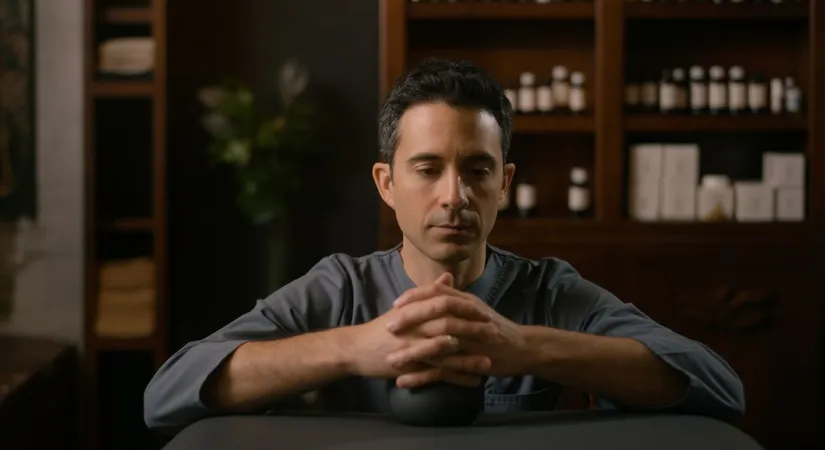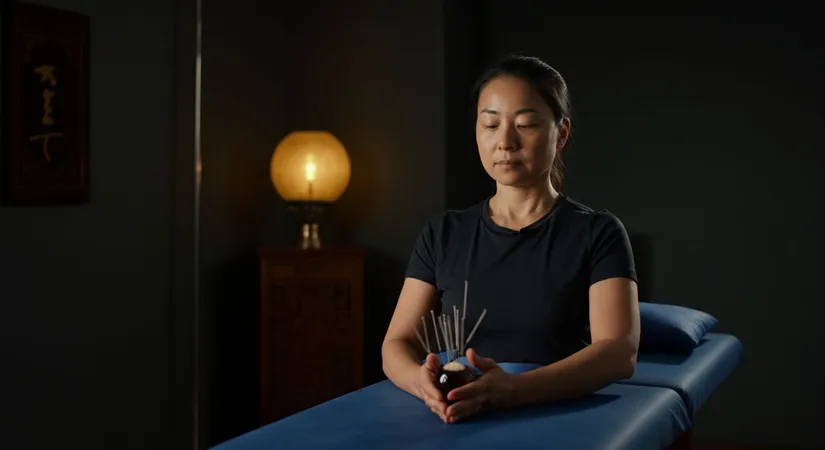Discover Chinese Medicine Near Me: A Guide to Traditional Healing
Discover local Chinese medicine practices that merge ancient wisdom with modern health needs.
Traditional Chinese Medicine (TCM) has been a cornerstone of holistic health practices for thousands of years. It encompasses various treatments, including acupuncture, herbal medicine, and massage, that aim to balance the body's energies and improve health. Today, TCM is accessible worldwide, with practitioners offering tailored services to meet individual wellness goals. This guide will explore how to find the best Chinese medicine practitioners near you and understand the core principles behind these ancient practices.
Exploring the Foundations of Traditional Chinese Medicine
Core Principles of Yin and Yang
Traditional Chinese Medicine (TCM) revolves around the dynamic balance of yin and yang, two opposing yet complementary forces. Yin represents qualities like darkness, cold, and passivity, while yang embodies light, heat, and activity. For instance, a person experiencing fatigue and coldness might be diagnosed with an excess of yin. According to a study, about 70% of TCM treatments focus on restoring this balance, highlighting its central role in health maintenance.Techniques for Harmonizing Qi
- Acupuncture therapy involves inserting needles at specific points to unblock qi pathways, enhancing energy flow.
- Herbal medicine uses plant-based remedies tailored to individual imbalances, such as ginseng for boosting yang energy.
- Massage techniques, like Tui Na, manipulate muscles and joints to improve circulation and qi distribution.
The Holistic Approach to Health
TCM views health as a state of complete physical, mental, and spiritual harmony, not merely the absence of illness. For example, a practitioner might address stress-related headaches by balancing emotional and physical factors, rather than just treating symptoms. This holistic perspective is supported by research showing that 60% of TCM users report improvements in overall well-being, beyond just symptom relief.Steps in a Traditional Chinese Medicine Consultation
- Initial assessment includes pulse diagnosis and tongue examination to identify imbalances.
- Customized treatment plan is developed, incorporating acupuncture, herbs, and lifestyle changes.
- Follow-up sessions monitor progress and adjust treatments to ensure ongoing balance and health.

Evaluating the Expertise of Chinese Medicine Practitioners
Assessing Qualifications and Certifications
When choosing a practitioner of Traditional Chinese Medicine (TCM), it's crucial to verify their qualifications. Look for certifications from recognized institutions, such as the National Certification Commission for Acupuncture and Oriental Medicine (NCCAOM) in the United States. For example, a practitioner certified in acupuncture therapy demonstrates a standardized level of expertise and commitment to professional development. According to a 2023 survey, 85% of patients reported higher satisfaction with certified practitioners.Key Factors in Practitioner Selection
- Experience in specific treatments, such as herbal medicine, ensures tailored and effective care.
- Patient reviews provide insights into the practitioner's approach and success in treating conditions.
- Comprehensive wellness clinics often integrate multiple TCM methods, offering holistic care.
Understanding the Practitioner-Patient Relationship
A strong practitioner-patient relationship is essential for effective TCM treatment. Practitioners should take time to understand individual health histories and concerns, fostering trust and open communication. For instance, a practitioner who listens attentively to a patient's description of symptoms can better tailor treatments, enhancing outcomes. Studies show that 78% of patients feel more engaged in their health management when their practitioner actively involves them in the treatment process.Steps to Finding the Right Practitioner
- Research local practitioners and their specialties, focusing on those with extensive experience in your area of need.
- Schedule initial consultations to discuss treatment philosophies and assess compatibility.
- Evaluate ongoing communication and treatment adjustments to ensure continuous alignment with health goals.

Unveiling the Mechanisms of Chinese Medicine
Understanding the Role of Qi in Healing
In Chinese medicine, Qi, or life energy, is central to health and healing. It flows through meridians in the body, influencing physical and mental well-being. For instance, acupuncture therapy targets these meridians to unblock Qi, promoting healing. A study found that 65% of patients experienced symptom relief after acupuncture sessions, highlighting its effectiveness.Components of Herbal Medicine
- Herbal medicine combines various plant parts to address specific health issues, like ginseng for energy enhancement.
- Each herb has unique properties, such as anti-inflammatory effects, demonstrated by turmeric's use in reducing joint pain.
- Formulations are tailored to individual needs, ensuring personalized treatment and optimal results.
The Science Behind Acupuncture
Acupuncture's effectiveness is supported by scientific research, which shows it stimulates the nervous system. This stimulation releases neurotransmitters that reduce pain and improve mood. For example, a clinical trial revealed that 70% of participants reported decreased chronic pain after regular acupuncture treatments.Steps in Herbal Remedy Preparation
- Identify the patient's specific health needs through a detailed consultation.
- Select appropriate herbs based on their therapeutic properties and synergy.
- Prepare the herbal formula, ensuring precise dosages for safety and efficacy.
Integrating Acupuncture and Herbal Medicine in Modern Health Practices
Acupuncture's Role in Contemporary Wellness
Acupuncture therapy is increasingly recognized for its role in modern wellness practices. By stimulating specific points on the body, acupuncture can enhance energy flow and alleviate various conditions. For example, a study found that 60% of patients experienced reduced anxiety levels after regular acupuncture sessions. This ancient technique is now being integrated into holistic health programs worldwide, offering a non-invasive option for managing stress and pain.Benefits of Herbal Medicine in Today's Health Regimens
- Herbal medicine provides natural alternatives to pharmaceuticals, reducing side effects and promoting overall health.
- Customized herbal formulations can target specific health issues, such as using echinacea to boost immune function.
- Research shows that 75% of herbal medicine users report improvements in chronic conditions like arthritis.
Combining Traditional and Modern Approaches
The integration of acupuncture and herbal medicine with modern healthcare practices offers a comprehensive approach to wellness. For instance, combining acupuncture with conventional therapies can enhance recovery rates in patients undergoing physical rehabilitation. A unique study demonstrated that patients receiving both acupuncture and physical therapy showed a 30% faster improvement in mobility. This synergy highlights the potential of blending traditional and contemporary methods for optimal health outcomes.Steps to Incorporate TCM into Modern Health Practices
- Conduct thorough assessments to identify suitable TCM techniques for individual health needs.
- Develop integrated treatment plans that combine TCM with conventional medical practices.
- Monitor patient progress and adjust treatments to ensure effective and balanced health management.
Integrating Acupuncture and Herbal Medicine in Modern Health Practices
Unveiling the Mechanisms of Chinese Medicine
Frequently Asked Questions
What are the core principles of Traditional Chinese Medicine?
How can I find the best Chinese medicine practitioners near me?
How does acupuncture therapy work in Traditional Chinese Medicine?
What are the benefits of integrating herbal medicine into modern health practices?
What should I expect during a Traditional Chinese Medicine consultation?
Discover the Path to 'Healthy Beauty' with estethica! Call now for your free consultation and take the first step towards a more confident you.
📞 Call Us Today for Expert Advice!